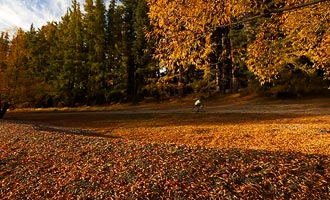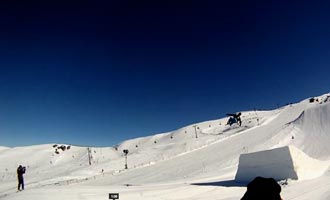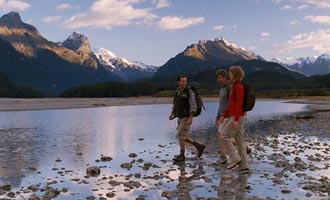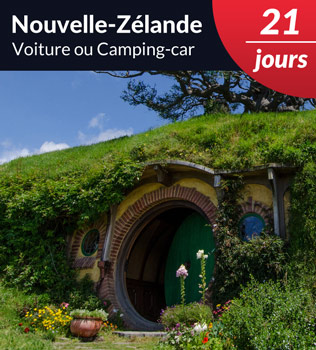
What Is the Best Season to Travel?
Please contact us and we will help you to organize your trip! It's free and without commitment.
- Read the post
- Details
- Advices
Presentation.
- 1It's the World Upside Down.
- 2All Season in a Single Day!
- 3Travel in Spring (September to November).
- 4Travel in Summer (December to February).
- 5Travel in Autumn (March to May).
- 6Travel in Winter (June to August).
- 7Which Season to Choose?
It's the World Upside Down.
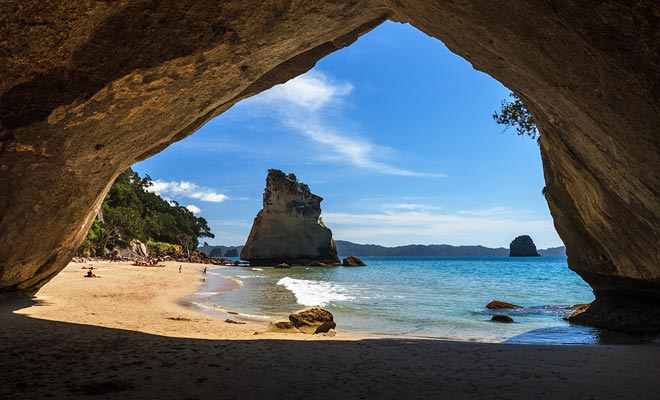
Travel in December and you will arrive in full New Zealand summer.
The seasons are reversed in the southern hemisphere. The European winter corresponds to the New Zealand summer. Travelling at this time of the year should allow you to escape from the dreariness. Of course if you planned your budget and if you are allowed to leave your work at this period of the year.
The New Zealand tourism season begins in October and ends in May. Which locally corresponds to an interval between the beginning of spring and the mid-autumn. The country has substantial accommodation capacity, but the peak season results in an increase in attendance and therefore prices.
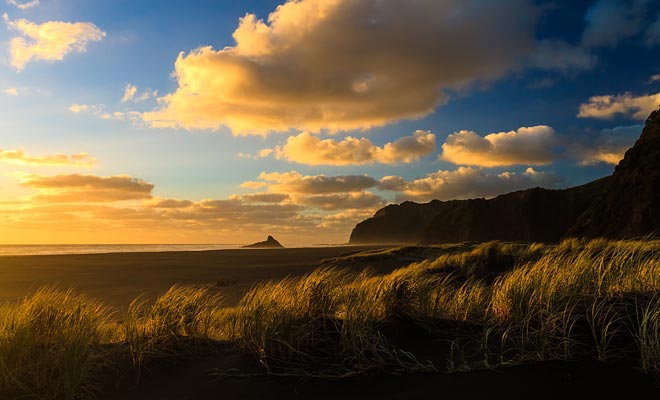
The mild climate makes it possible to travel during all seasons.
The bargains are still possible between May and September (including discounts for students and seniors), but the weather is less pleasant for tourism.
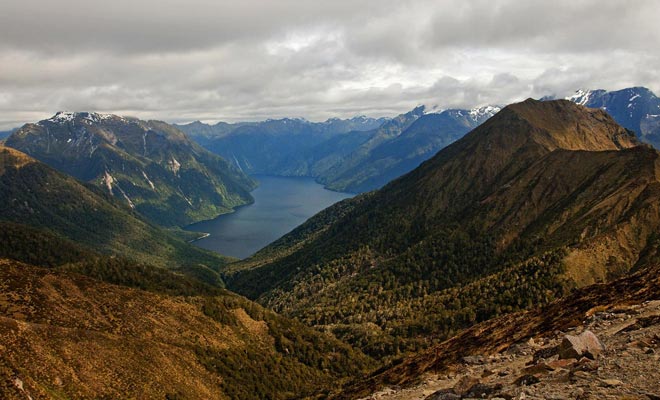
The country remains beautiful during the low season.
You will find that the rates are quite similar throughout the year. So when should one come to take maximum advantage of the trip? The answer depends essentially about your climate expectations. Each season has both strengths and weaknesses... So, here are my tips...
All Season in a Single Day!
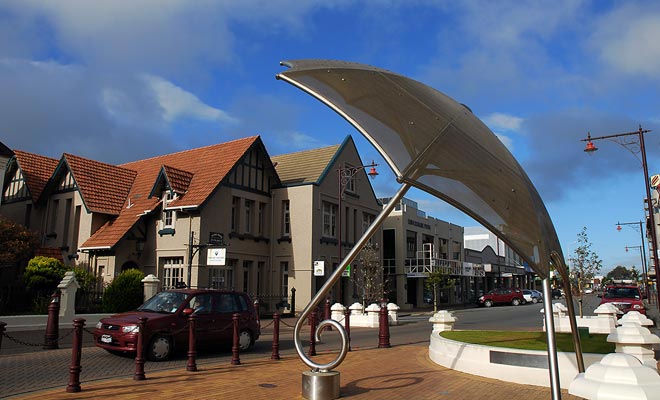
The weather can change several times during the day.
You may already know that New Zealand is composed of two main islands. The climate in the northern part of the North Island is subtropical. The rest of the country is mainly characterized by a temperate climate.
The thermometer descends slowly by a few degrees between the two extremities of the country. However (and this is a unique feature of New Zealand) there are exceptions related to the presence od many microclimates. At a 50 km distance, it is not uncommon to record differences of 10°C.
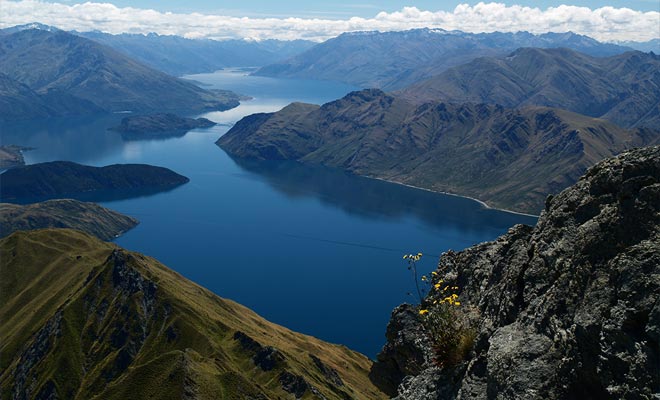
Mountain chains give rise to microclimates.
Located in the axis of the Roaring Forties, New Zealand undergone great gusts during the whole year.
The phenomenon is more marked on the West Coast, and you'll probably experience it while visiting Wellington, the capital of the country. One may witness some spectacular changes of climate within 24 hours. Waking up with a gray and rainy sky does not mean you won't enjoy a big blue sky at noon.
The alternation between sun and rain may continue until the evening comes. It is often said that the country can deliver all the seasons on the very same day!

The wind is strong in many areas.
One must never desperate of the time in New Zealand! The most threatening clouds may dissipate in less than an hour. Guessing the weather of the day is a kind of national sport, even if the climate is much warmer during the high season, of course.However, your trip cannot rely solely on the weather! One must take into account the activities and the atmosphere of each season to decide when to plan a stay.
Travel in Spring (September to November).
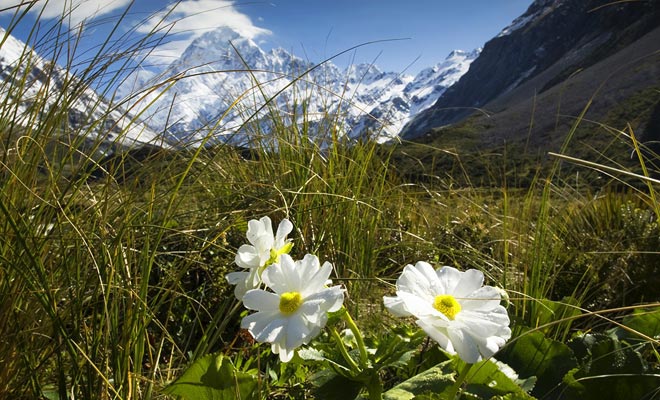
The ideal is to come in the spring to admire the valleys in bloom.
Spring is the windiest season and the wettest accordingly. The sky is often blue, but climate instability is more pronounced. Rugby players complete the championship. This is something to be considered if you hope to attend a game in the land of the world champions.
This is a season of festivals, with most cities and regions whom organize large floral contests, gastronomic celebrations and wine tasting. I particularly recommend visiting the Mt Cook at this period of the year, when the valleys are covered with flowers.
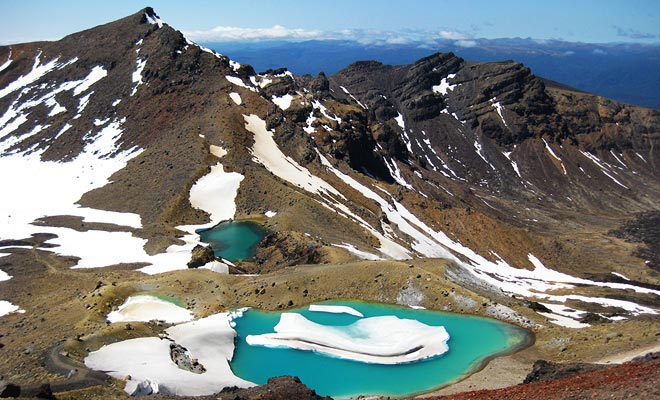
In early spring, the Tongariro Crossing is still snow-covered.
Be careful though if you plan to follow the Tongariro Alpine Crossing. In early spring, the most famous trek in the country can still be under the snow!
One must await mid-October for the track to be easy to hike. Even so, there are great chances that the emerald lakes to still be prisoners of the ice.
Should we expect the summer to put all chances on our side?
Travel in Summer (December to February).
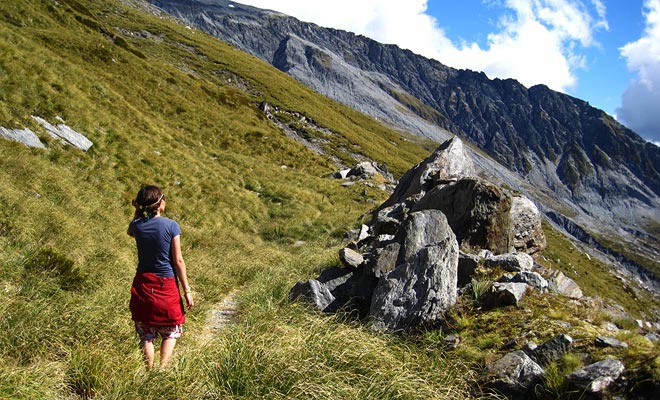
Summer is the ideal season for long hikes.
With temperatures between 20 and 30 ° C on average, the summer has a much more stable climate (even if it rains regularly at the northern point of the country until the end of December). It's no surprise that New Zealanders take their holidays at this time of the year!
The Christmas holidays continue in January, which means that you should plan your holidays far in advance. The most popular places can be fully booked, so do not expect to find last-minute deals around Nelson, Queenstown, Wanaka or Taupo for example.

National parks are mostly frequented during the summer months.
The attendance explodes with the arrival of the summer holidays! The festivals are multiplying and many outdoor concerts attract crowds. The tourist hordes invade the beaches or rivers where the temperature is finally warm enough to swim.
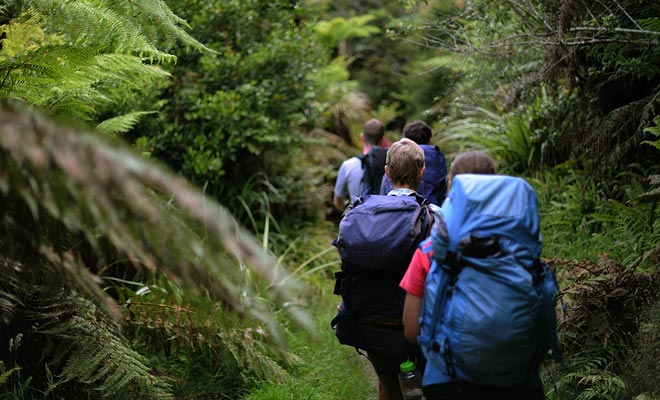
You will often have to share the trail with other hikers.
The 14 national parks are all open to the public, but you will have to share the trails with other visitors. Summer is the best season for sure, but also the more appealing and the most expensive in New Zealand. So, can we expect a more favorable situation with the arrival of autumn?
Travel in Autumn (March to May).
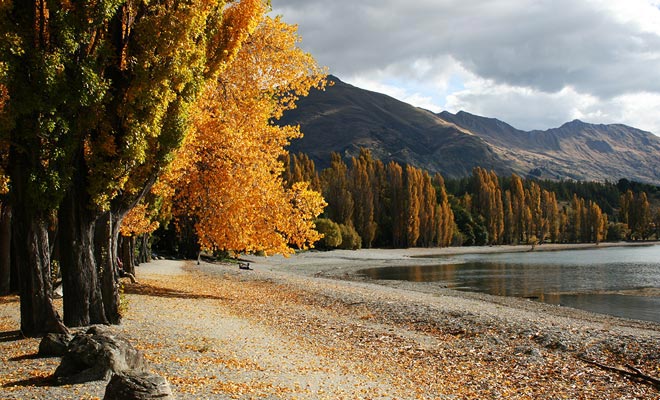
The beginning of autumn is strongly recommended by Kiwipal.
Autumn is greatly underestimated by foreign tourists which makes it a bargain, because the climate remains stable. The temperatures lose few degrees, of course, but the good weather usually lasts until mid-season and the climate is mild.
Some regions, such as the Otago on the South Island, are even more pleasant than during summer. The vegetation of Wanaka turns to a gorgeous orange while the harvest begins in the vineyards.
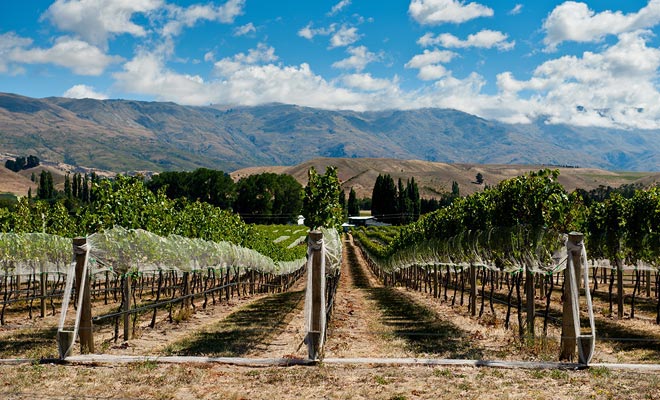
The wineries are spectacular in autumn.
Most of the activities are still practicable and attendance declines considerably.
However, do not expect to swim excepted during warmest days of the season. Prices have already fallen, but you can reduce the bill even more during the winter.
But can we really travel during this period of the year?
Travel in Winter (June to August).

Only the southern part of the country experiences snowfall in winter.
The North Island is characterized by mild and wet winters. With average temperatures between 10 and 15 ° C, one might believe to visit France during early spring. However, the South Island's temperatures will suddenly drop of ten degrees and the climate will become harsh.
Winter is far from being as cold as in Europe. The snow falls only on the highest peaks and at the southern part of the country. However, rain is far more present and many regions undergo their worst weather of the year with occasional floods.
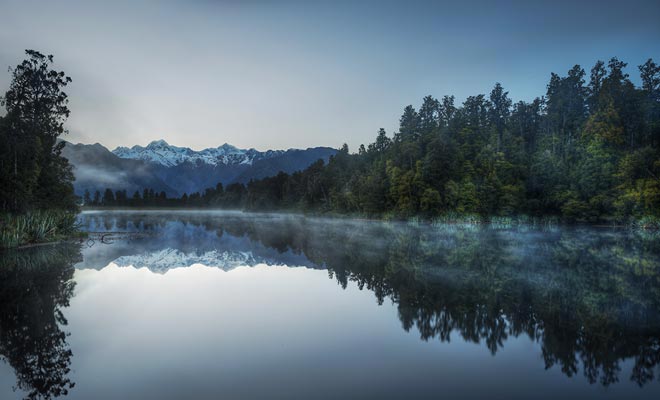
In winter, the majority of tourist places are deserted.
Do not expect to enjoy the beach, with most resorts being deserted with their shops closed. But many activities remain available! For example, this is the best season to spot whales in the Kaikoura Peninsula.
The majority of New Zealand's trees are evergreen, which means that the country remains magnificent even during winter. Icing on the cake: the price of accommodations and transports drop considerably.
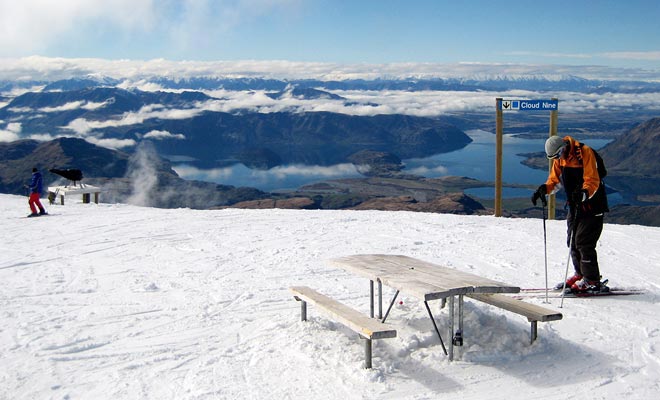
The ski resorts open their doors at the beginning of winter.
The mountains of New Zealand allow you to ski in the entire country. But the best resorts are located in the South. The ski season begins in June and extends until mid-October. The views are breathtaking, especially at Cardrona and Treble Cone in the region of Otago.
Which Season to Choose?
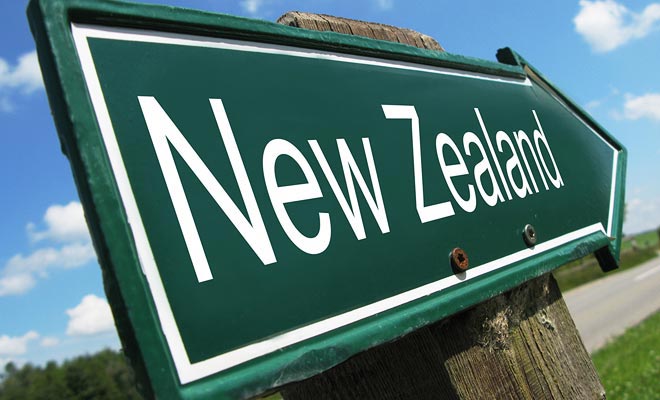
The New Zealand summer begins in December!
I gave you an overview of the strengths and weaknesses of each season, so let's try to summarize the situation.
The periods running from October to November or between April to May are a little cooler, but considerably less crowded. These seasons correspond to the late spring and the late fall.
They might lack the bright charm of summer, but once again, these mid-seasons offer excellent compromises in terms of climate, attendance and especially budget!
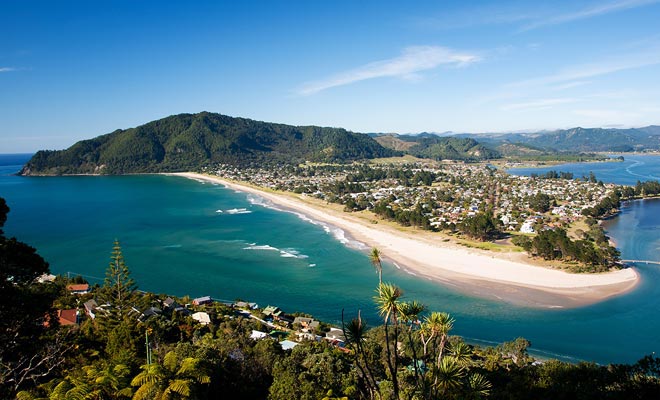
Only the summer months are suitable for swimming.
If you want to travel during summer time, you should try to avoid school holidays at least.
Especially the Christmas ones running from mid-December to late January (except if you prefer the festive mood). It is perfectly possible, but one must book far in advance!
Otherwise, you will find nothing but overcrowded hotels, and the price of car rentals will rise accordingly.
Furthermore, I not particularly fond of queuing in museums … even when they are free!
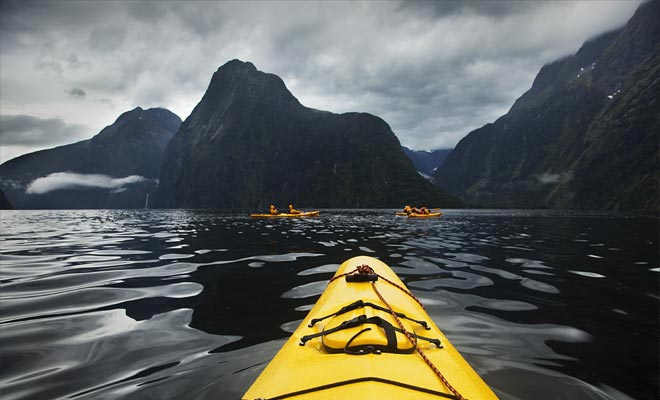
The low season is ideal to avoid the crowd.
The place is already far more breathable in late February when kids are back to school.
Late summer and early fall are probably the most interesting periods. The rebates are strong and the blue sky is still there. The question is whether or not you can request holidays at this period of the year?
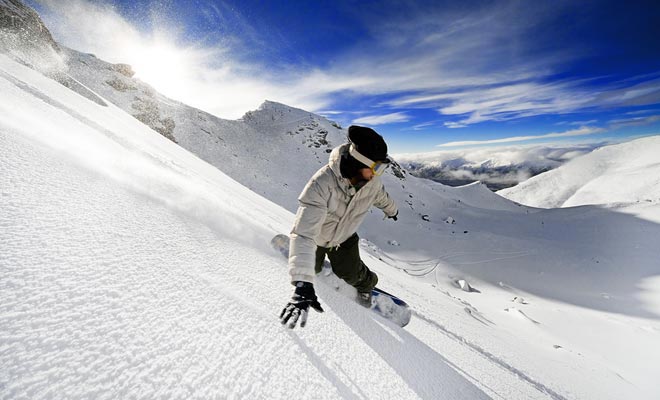
Winter is more recommended for a second stay.
Do not neglect the spring season, but avoid the month of September if possible. I have visited the country during mid-October many times, and most tourist places were deserted, including the famous Milford Sound. If you are looking for tranquility, this is an interesting opportunity and the prices are still low.
Unless you come to ski, winter is rather recommended for a second stay.
Winter is a good option if you have already visited the country in the past and if you plan to ski. The ski resorts are small, but the panoramas are absolutely stunning.
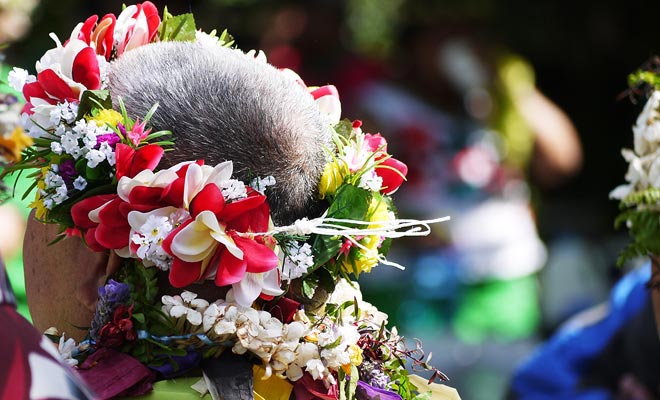
Festivals take place all year round in New Zealand.
It is pointless, however, to target a particular season to enjoy festivals. Each region celebrates its anniversary at a different period of the year and there are so many occasions to celebrate. If you are still curious about temperatures, I suggest you read my article fully dedicated to the weather in New Zealand.You can also start looking for some visits ideas. Our ranking of the best activities of the country should help.


Questions & Answers.

What can I do for you? Each season has its advantages and disadvantages, but New Zealand remains beautiful all year round. I can help you plan your next trip!
- All topics ... 17 answers in total
- Seasons and Activities 5 answers
- Booking and Budget 4 answers
- Best Seasons 3 answers
- Worst Seasons 3 answers
- The Choice of the Islands 2 answers
Seasons and Activities
- What season to attend a rugby match?
The season runs from February to October, with matches taking place on Saturday. Because they usually prefer to travel between November and February, tourists rarely have the opportunity to attend a match, unlike the lucky ones with a Working Holiday Visa.
- What seasons to follow the Tongariro Crossing?
It is possible to go hiking all year round, but the winter months may require the presence of a guide and suitable equipment (cleat shoes) as the route is covered with snow.
- What seasons to ski?
The ideal is to ski between August and September (from the end of winter to early spring).
- What seasons to hike?
The hike is especially ideal in summer (December to February), but it is possible to hike practically all the year.
- What seasons to swim?
Prefer the months of December to February to swim in the North Island. Apart from these periods, you will have to wear a swim combination, especially in the South Island.
Booking and Budget
- How to save money on plan tickets?
It is no longer sufficient to book well in advance, it is also necessary to escape the IP Tracking of the airlines. This involves searching flight rates and to book on different computers.
- Is it possible to book at the last minute?
You will pay the full price by booking at the last minute.
- Is it more affordable to travel in winter?
The low season has the advantage of offering unbeatable prices. In return, you will not enjoy some activities that are closed during winter.
- How much does a whole journey cost?
It's too vast a question to answer! Please check our itineraries section to get an idea of the market prices.Kiwipal Itineraries
Best Seasons
- What is the best season to visit the country?
I appreciate especially the beginning of autumn (March), but the period November-February is probably the most interesting to visit New Zealand.
- What is the best month for a stay?
Undoubtedly the month of February which corresponds to the end of the summer.
- Which season to start a WHV?
Travelers from Europe who leave for 6 months should arrive in New Zealand in December. This way, they will get two consecutive summers!
Worst Seasons
- Is there a season to avoid?
There is not, strictly speaking, a season to avoid because the country remains beautiful all year round. But the beginning of spring (in September) is marked by higher rainfall and unstable weather.
- Is winter to be avoided?
No, it does not rain more, and if the climate is cooler, the big blue skies are not uncommon.
- What season to avoid the rain?
The least rainy period is from December to March, in summer and early fall.
The Choice of the Islands
- When to visit the North Island?
Ideally in the summer to enjoy the beaches and swim with the dolphins.
- When to visit South Island?
The island of the South and its grandiose landscapes can be visited all year round, but it is better to avoid the winter if you plan to go hiking.


